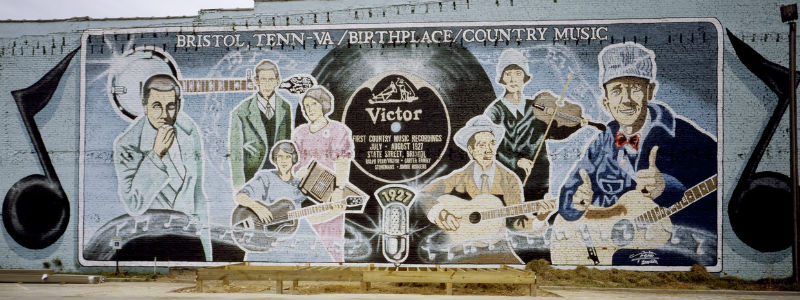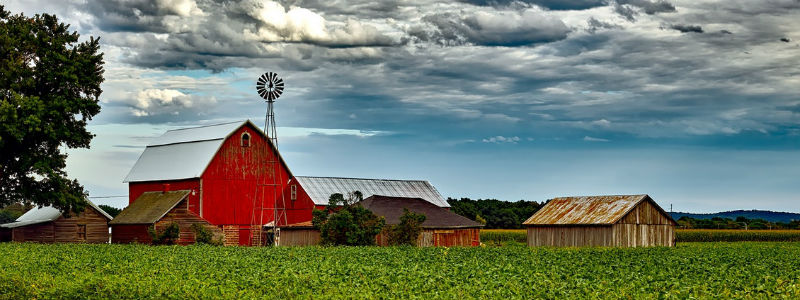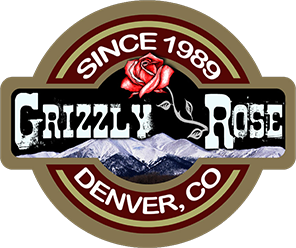How Did Country Music Get its Name?
There are some things in life that seem obvious until you take the time to actually examine them. The term country music is one of those things. If you’ve grown up listening to it and talking about it, then you’ve probably never questioned it. After all, it feels so natural and right. But at one-time music that we’d quickly identify as country wasn’t referred to by that name. Prepare to take a trip back in time to the creation of one of America’s greatest musical traditions.

A Musical Melting Pot
Country Music is the Result of a Musical Melting Pot. What we now know is country music didn’t come into existence fully formed. In fact, you could say that it started out as a variety of different genres that would eventually converge to create country music as we know it. Like a tree with many roots coming together to support one great trunk.
Most of country music’s history and roots actually stretch across the Atlantic ocean. America is a country of immigrants and an immigrant always brings some of their homeland with them. Irish and Scottish immigrants were uniquely important because their music emphasized the fiddle, a musical instrument that still helps to define country music’s sound today. If you visit a pub in Ireland or Scotland today, you can still make out some of the influences that have carried over into modern country.

Origins in Folk Music
Folk music from across America would come together in a town in Tennessee. For centuries American folk music evolved organically as separate communities created music in relative isolation. Before the invention of the radio if someone in Atlanta wanted to hear music from New York they’d either have to make a grueling trek or wait for the rare touring artist to come by. Out in rural areas tours were even less common, so musical traditions formed in isolation, but usually with a common set of country music instruments.
For the people who created country music the songs that they were playing didn’t necessarily need a label. It was the music their parents listened to, the music their peers played, and the soundtrack to their lives in general. It was the people on the outside who needed to label the strange sounds that they were hearing.
The music truly expanded beyond the musicians themselves with the invention of recording. The first electrical recordings were done in the 1870s, but it wasn’t until the 1920s when it caught on with the public at large. Fiddin’ John Carson was one of the first artists to record what we might call country in 1923, but it wasn’t until 1927 when the musical genre we know today really took form. In Bristol, Tennessee a producer named Ralph Peer decided to capture the music of the south by bringing in a wide variety of artists to capture their music. The records he produced became so influential that the city of Bristol was named the “birthplace of country music” by the American government.

A New Name for the Genre
The popularity of country music demanded the creation of a new term. In the 1930s country music took off, finally stretching beyond its geographic birthplace. As the music spread, outsiders started to look it with new eyes, searching for something to call it. Radio DJs, record company executives, and musical historians would look at the music coming out of rural America and give it a variety of terms. There was southern folk, western, hillbilly, and eventually country music. All of the terms would be used interchangeably for a while, but in the 1940s the term country and western won out over the rest. References to the south were too restrictive, and hillbilly seemed too insulting, so eventually the label country and western became the most popular term.
As time went by people started to drop the “western” from country and western music. This is a common trend in English, think about how rock and roll became rock. The most obvious reason for the change is just making the term easier to say, but you could also argue there’s a deeper reason. The term western was out of place because country music isn’t owned by the west or the east, the north or the south. While the physical heart of the country music industry is in Nashville, its spirit lives on across the country and around the world.

Continual Changes
To this day country music continues to grow and change. Country was given its name to suggest that it was the music of rural America. The city had music like classical, jazz, big band, and rock and roll. Then there was the music of the countryside, country music. But anyone who listens to country today knows that this distinction isn’t as clear as it might have been once upon a time. Today musicians of the countryside are influenced by musicians of the city and vice versa. After all these years the strength of country music is how it mixes together musical elements from just about every part of American society.
Earlier we talked about how the blues along with Celtic and Appalachian folk acted as the roots that supported the tree of country music. Today you can see how the genre continues to grow by branching out in many different directions. Country is mixing in with just about every other genre as American artists do what they do best, creating beauty out of differences.



